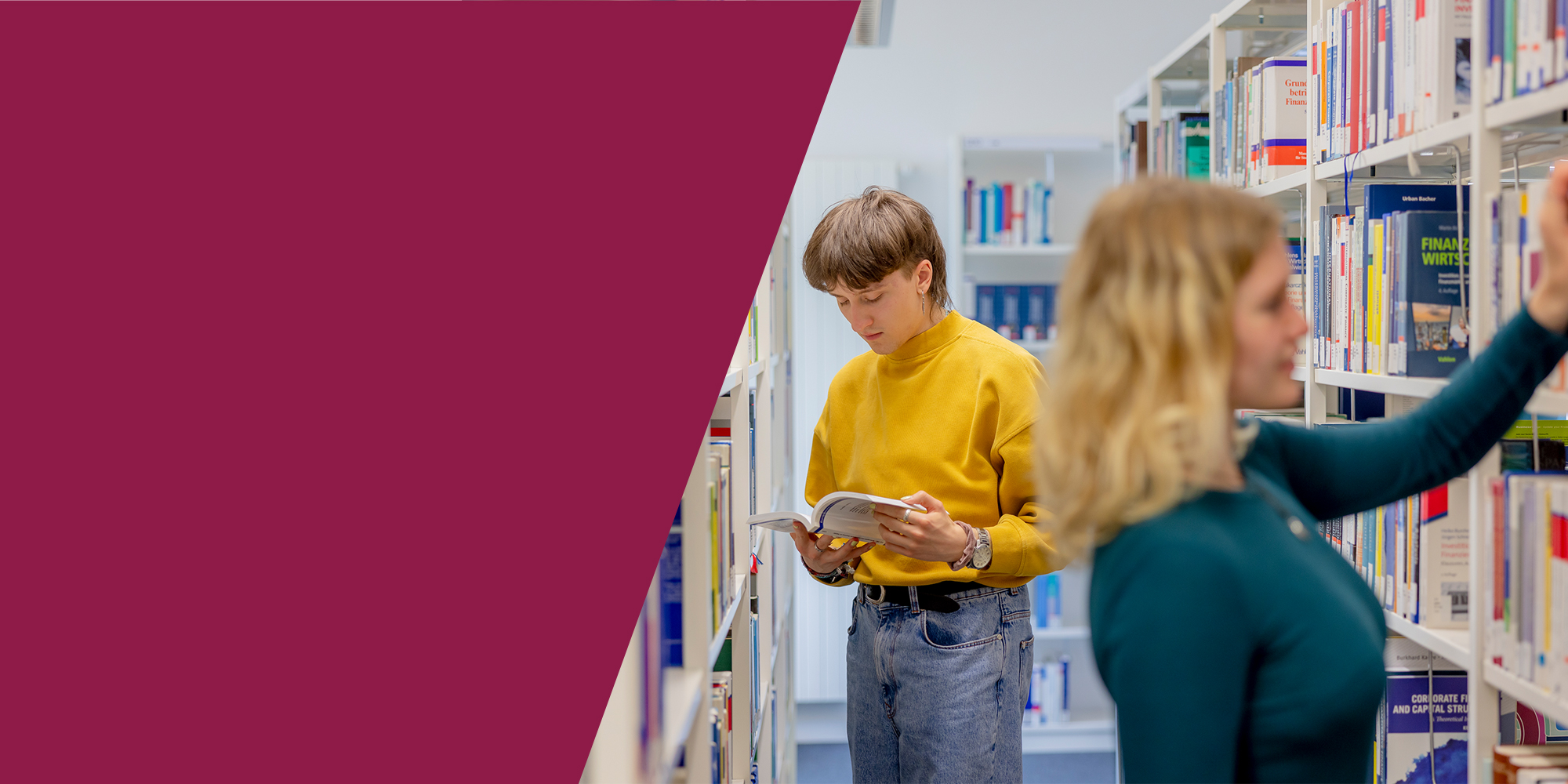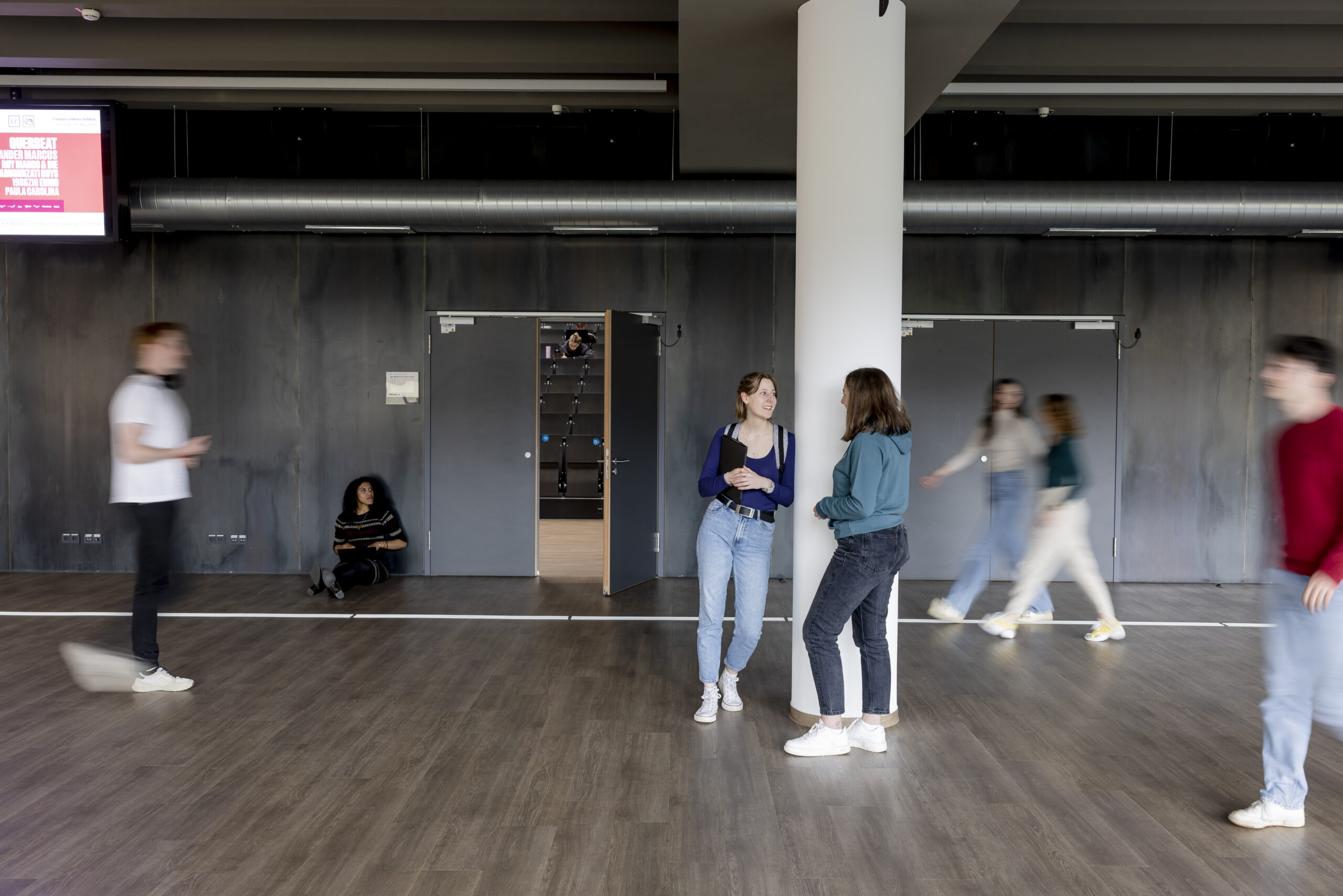
Master
Linguistics: digital, applied, structural
Short info about the course of study
| Restricted admission | Standard period of study | Start of studies |
| no | 4 semesters 8 semesters (part-time) | Summer and winter semester |
Authorisation procedure
The program is admission-free, but an application is required.
Application deadline
01 October to 15 March Application possible for the summer semester
completion
Master of Arts
Further information about the degree programme
Language of instruction
German, English, French, Spanish (depending on the chosen focus)
The course of study
LiDAS enables you to study both research and practice-oriented, in which you can choose between three areas of specialization in terms of content and select different linguistic focuses: (1) Structures of Language(s) – Digital Linguistics (DL), two linguistic focuses, (2) Professional and Public Communication (PEC), one linguistic focus, (3) Foreign Languages in Adult Education (FidE), one linguistic focus. You acquire subject-specific knowledge and skills that, on the one hand, pave the way for a scientific career and, on the other hand, provide you with the skills for expert activities in various professional fields.

5 Reasons to Study LiDAS
in Siegen
✓ diverse, cross-philology studies
✓ Linguistic theory, practice and empiricism from a single source
✓ interdisciplinary work at the interface to social and educational sciences, media studies, computational linguistics and foreign language didactics
✓ Integration of studies into ongoing teaching and research projects (such as the Discourse Monitor)
✓ great scope for design through the realization of own multi-semester research projects
Career prospects
Structures of language(s) – Digital Linguistics
- activities related to the development and distribution of media-based communication platforms (voice data analysis, web applications, data journalism, etc.);
- Intermediation between languages/speakersinside/communicating userinternally on the one hand and IT specialists on the other,
- the development of own language technology applications for tasks in research, education and business.
Foreign Languages in Adult Education
- activities in the planning and organisation of foreign language courses in continuing vocational training and general education, including the use of digital media and forms of communication;
- the supervision/management of language departments/language centres at universities and public and private continuing education institutions;
- the establishment and management of multimedia self-learning centres,
- work in teaching and learning media publishers and online providers of language learning resources.
Professional and public communication
- Planning and organization of seminars for the development of (professional) oral and written communication skills, with special attention to media-supported, especially digital communication and intercultural constellations,
- responsible activities for language and communication experts, especially in the areas of human resources/training and further education, corporate communication (especially on digital platforms), internal communication in organisations, public relations in multilingual contexts,
- the provision of communication advice, coaching and training.
Here's what Viktoriia and Thiemo have to say about their studies:
‘Interdisciplinary – Application-oriented – Versatile’
Read more
FidE – Viktoriia Matiushenkova
My name is Viktoriia and after graduating in Translation and Translation Studies with the additional qualification Teacher of Foreign Languages (English and German) at the Kemerovo State University, I started to study the Master of Applied Linguistics in Siegen in the winter semester 2021/2022 with the specialization of foreign languages in adult education in English.
I made the decision to study for several reasons. On the one hand, I was fascinated by the opportunity to specialize in linguistics and foreign languages in adult education at the same time. On the other hand, I wanted to deepen my knowledge in adult education and compare pedagogical approaches of both countries.
During my studies, I gained valuable insights and inspiration for my work as a foreign language teacher through various courses. The same applies to a further education program called DaZSi (Learning German with newly immigrated students and adults), thanks to which I prepared myself professionally and ultimately received admission to teaching in integration courses. I am currently working in adult education and put my acquired knowledge to practical use.
In summary, this master's programme has enriched me academically and personally, taught me important skills and broadened my professional perspectives. I am grateful for the support and look forward to continuing to apply my knowledge in practice.
‘Professional preparation – Community – Practical’
PK – Thiemo Simstich
My name is Thiemo Simstich and I have been studying the course Communication and Foreign Language at work with the specialization Professional Communication in the language German since the winter semester 2021/22.
Already during my Bachelor's degree in Language and Communication, which I also completed in Siegen, I discovered my interest in Applied Linguistics, which I can deepen well with the Master's degree program. In addition to the obvious added value of studying, the large number of acquaintances and interesting people was particularly formative for me, which is primarily due to the successful combination of age structure and university atmosphere. As a result, it takes little effort to get started – you just have to be confident.
Through the internship, which I completed during my studies at an agency for communication consulting, I was already able to secure a permanent position after my studies. This speaks for the university and for the
Learned.
Admission requirements
- 1) Bachelor's degree in a subject-related course of study with a linguistic focus or
- 2) a first professional university degree in a comparable course of study. These include, in particular, teacher training courses with a standard period of study of at least six semesters as well as equivalent foreign courses of study.
You will need to demonstrate proficiency in English at level B2. A prerequisite for access is also the proof of very good knowledge in the chosen linguistic focus or in the chosen linguistic focus at the following levels:
- English, French: Level C1
- Spanish: Level B2
The current examination regulations always apply.
Study organisation
Subject examination regulations including course plans and module descriptions
In addition to the framework examination regulations (RPO-M) and the general subject-specific regulations of the subject examination regulations (PHIL-FPO-M), the subject examination regulations of the individual (sub-)courses of study (FPOs) define the basic structures of a (sub-)course of study (e.g. entry requirements and content to be studied). The subject examination regulations are accompanied by course plans, which represent the recommended exemplary course of study in the individual subjects, as well as module descriptions (content information on modules).
For students, the current version of an FPO automatically applies when enrolling in the first semester.

Advice and contact
Make an appointment now at:
info.studienberatung@zsb.uni-siegen.de
or by phone at: 0271 740-2712
(Mon – Thu: 9 a.m. - 4 p.m. / Fri: 9 a.m. – 12 noon)